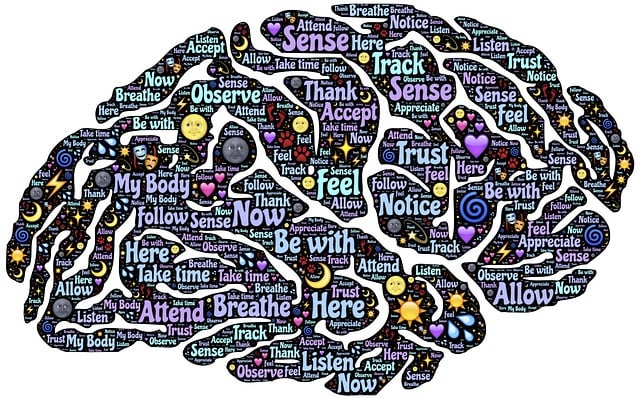Denver Alcohol Abuse Therapy provides comprehensive guidance for emotional health through mood regulation techniques. They empower clients to identify triggers, develop healthy coping strategies, and navigate life's challenges with resilience. By addressing underlying causes of mood instability, combining professional support with self-care practices, and emphasizing peer support, the program fosters long-term mental wellness. Mindfulness, physical exercise, balanced diet, and quality sleep are key components integrated into their holistic approach to assist individuals in managing daily moods effectively.
Mood regulation strategies are essential for maintaining emotional balance, especially for those struggling with alcohol abuse. In this article, we delve into the basics of understanding mood regulation, explore common challenges faced in maintaining stability, and introduce a comprehensive approach through Denver Alcohol Abuse Therapy. We also offer practical strategies for daily mood management and recovery, providing valuable insights for those seeking to reclaim their emotional well-being.
- Understanding Mood Regulation: The Basics of Emotional Balance
- Common Challenges in Maintaining Mood Stability
- Denver Alcohol Abuse Therapy: A Comprehensive Approach to Mood Regulation
- Practical Strategies for Daily Mood Management and Recovery
Understanding Mood Regulation: The Basics of Emotional Balance

Mood regulation is a fundamental aspect of emotional well-being, and maintaining a balanced perspective on life is essential for overall mental health. It involves managing and controlling one’s emotions effectively, ensuring they remain within a healthy range. Emotional balance is like a pendulum—too much excitement can swing one end, while prolonged sadness tips the other. In today’s fast-paced world, with its hustle and bustle, maintaining this equilibrium can be challenging.
Denver Alcohol Abuse Therapy offers valuable insights into mood regulation strategies, helping individuals understand their emotional triggers and develop healthy coping mechanisms. This involves recognizing patterns in thinking and behavior that contribute to negative moods and learning to navigate life’s ups and downs with resilience. Through various therapeutic approaches, including mental wellness coaching programs and community outreach initiatives, Denver Alcohol Abuse Therapy fosters self-esteem improvement and provides tools for lasting emotional well-being.
Common Challenges in Maintaining Mood Stability

Maintaining mood stability can be a significant challenge for many individuals, often requiring consistent effort and coping strategies to manage emotional well-being effectively. One of the primary obstacles lies in recognizing and addressing underlying causes of mood fluctuations. These may stem from various sources, such as stress, traumatic experiences, or even certain medical conditions. For instance, those struggling with anxiety or depression might find it difficult to stabilize their moods without professional guidance, like Denver Alcohol Abuse Therapy services.
Moreover, developing resilience is crucial for overcoming these challenges. Mental wellness coaching programs and journaling exercises can provide valuable tools for self-reflection and emotional regulation. Through structured guidance, individuals learn to identify triggers, adopt healthy coping mechanisms, and cultivate a sense of inner strength. By combining professional support with personal practices, one can enhance their ability to navigate mood swings and foster overall mental wellness, thereby reducing reliance on external interventions over time.
Denver Alcohol Abuse Therapy: A Comprehensive Approach to Mood Regulation

Denver Alcohol Abuse Therapy offers a comprehensive approach to mood regulation, addressing the root causes of emotional dysregulation and substance abuse. This holistic treatment focuses on integrating various evidence-based practices tailored to individual needs. Through personalized therapy sessions, clients gain insights into their triggers and develop effective coping strategies for managing stress and anxiety.
By combining behavioral therapies, cognitive reframing, and trauma support services, Denver Alcohol Abuse Therapy empowers individuals to achieve lasting emotional regulation. The program also emphasizes the importance of peer support groups and aftercare planning, ensuring that participants have the necessary tools to maintain sobriety and lead fulfilling lives post-treatment.
Practical Strategies for Daily Mood Management and Recovery

Managing one’s mood on a daily basis is an essential aspect of mental health awareness and overall well-being. There are numerous practical strategies that individuals can employ to effectively regulate their moods and promote mental wellness. One simple yet powerful technique is mindfulness, which involves being present in the moment and observing thoughts and emotions without judgment. This practice has been shown to reduce stress levels and enhance emotional resilience. Incorporating activities like meditation, deep breathing exercises, or even short walks into daily routines can significantly contribute to better mood management.
Additionally, engaging in physical exercise regularly plays a crucial role in stress management workshops organization, as it stimulates the release of endorphins, often referred to as ‘feel-good’ hormones. Whether it’s a brisk walk, yoga session, or joining a local sports team, finding an enjoyable form of physical activity can be a game-changer for mental health. Moreover, maintaining a balanced diet and prioritizing quality sleep are integral components of Denver Alcohol Abuse Therapy, supporting individuals in their journey towards better mood regulation and overall recovery.
Mood regulation is a vital aspect of overall well-being, and Denver Alcohol Abuse Therapy offers comprehensive strategies to navigate common challenges. By understanding the basics of emotional balance and adopting practical daily techniques, individuals can effectively manage their moods and foster recovery. This holistic approach, as showcased in the various sections of this article, empowers folks on their journey towards a more stable and fulfilling life.














